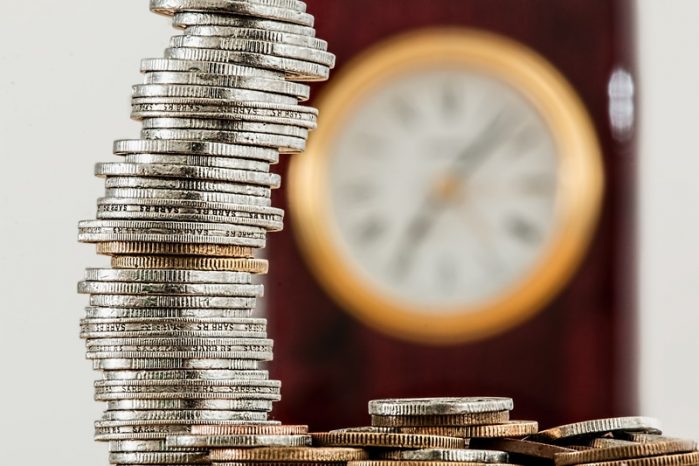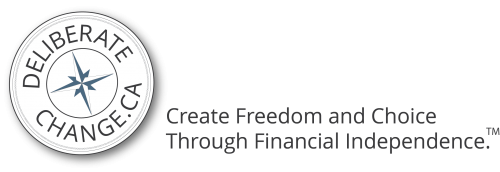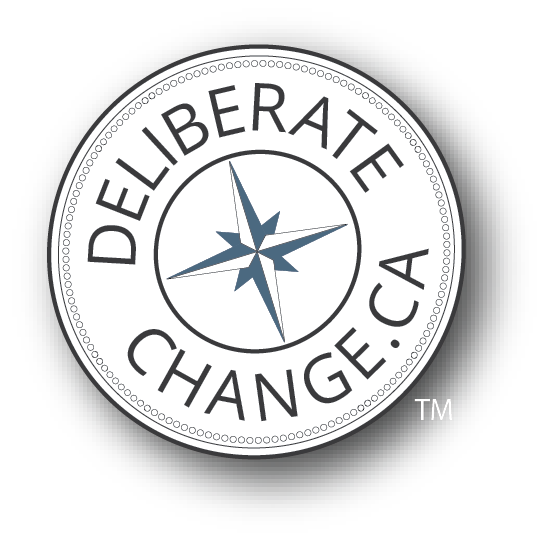 How much is a dollar worth? More specifically, how much is a dollar worth to you? This could quickly lead to a conversation about inflation and purchasing power, or to a comparison to other currencies, or to an even more philosophical discussion about value. But why not reframe the question and use “real” things to figure out what your money is worth and help you with your spending choices?
How much is a dollar worth? More specifically, how much is a dollar worth to you? This could quickly lead to a conversation about inflation and purchasing power, or to a comparison to other currencies, or to an even more philosophical discussion about value. But why not reframe the question and use “real” things to figure out what your money is worth and help you with your spending choices?
Let me explain.
When you buy a car or a house or some other very large purchase, do you consciously understand and know in your gut how much you’re actually spending? Probably not. If I asked you to head out and gather up 300,000 pebbles or 400,000 pebbles or 1,000,000 pebbles, would you really appreciate how many pebbles that is until you’ve finished collecting them? Again, probably not. It’s just “a lot” and “more than a lot”. And that’s one reason why we succumb to monthly payments. Sometimes even medium/large-ish purchases like iPhones, computers or vacations fall into this category.
So how can we appreciate this financial trickery in order to better control our own purchases and decisions?
Well, what I would like to propose is a simple yet effective method I learned back in high school when my family was constantly flying back and forth across the country to visit aging grandparents.
How Many Airplane Tickets Will That Cost?
 In our case, we needed to make trade-offs in order to afford all those plane tickets. So we started counting everything in terms of tickets. A new computer? Well, that’s worth 4 plane tickets. Upgrade to a better used car? 50 plane tickets. A week’s worth of gas? 1/4 of a ticket. And so on and so forth.
In our case, we needed to make trade-offs in order to afford all those plane tickets. So we started counting everything in terms of tickets. A new computer? Well, that’s worth 4 plane tickets. Upgrade to a better used car? 50 plane tickets. A week’s worth of gas? 1/4 of a ticket. And so on and so forth.
This doesn’t mean we necessarily skipped out on those items, but rather it reframed our decision-making process. It allowed us to figure out our options and make deliberate choices on how to spend our change.
Who Cares How Many Airplane Tickets That Will Cost?
I’m going to guess that you’re probably not in a position right now where you need to trade off airplane tickets against a new computer or iPhone. So why would you care about my family’s decisions back in the 1990s? Because it’s not about the airplane tickets. It’s about being deliberate with your money.
Because it’s not about the airplane tickets. It’s about being deliberate with your money.
In other words, if we can mentally replace the somewhat abstract notion of trading money for stuff with the far more concrete idea of trading stuff for different stuff, then it can make our purchasing decisions clearer. Of course, “stuff” in this context refers to anything tangible or experiential.
I’m not necessarily advocating for a bartering society, although there can certainly be advantages (and disadvantages). Rather, I’m advocating for bartering in your mind. MoneySense magazine put it this way:
For instance, if you’ve identified the annual family vacation as a priority, but noticed you’re spending $40 per week on take-out meals, you will gladly stop spending the money on pizza if you know the reward is a week away with your loved ones.
Here are some other specific examples that might be relevant:
- Car payments: That $400/month payment over seven years might not sound so bad in the showroom, but it’s equivalent to about one nice restaurant meal for you and your spouse each week for seven years.
- Gadgets: That latest $800 cell phone, tablet or camera is comparable to a new-to-you fancy living room furniture set from Kijiji or Craigslist.
- Furniture: That $800 furniture set is equivalent to the latest electronic gadget.
Did you see what I did there? It’s not about eschewing consumerism necessarily (I don’t care if you buy a new gadget instead of furniture or vice versa), but about making smart decisions! (Ok, I actually do care – I think you should buy neither, unless you absolutely need to.)
How Much Time or Effort Was That?
There’s another related concept, and that is to reframe your purchase in terms of your time and/or effort to generate that cash (after tax, of course). And this is at the core of why I think you should eschew consumerism to the maximum extent practical. Even I’m still trying, succeeding, failing and learning, in case you were wondering.
At the simplest level, let’s assume you’re considering a $100 purchase and you make $25/hr before tax. The first step is to figure out your after-tax earnings. You could dig up last year’s tax return or look up a tax calculator or just make an educated guess. In this example, assuming something like $20/hr after tax is pretty reasonable. If you’d like me to go into more details on how to get a better answer, let me know in the comments.
So now just divide the purchase by your hourly rate: $100 / $20 = 5 hours of work. Are you willing to trade 5 hours of your life for this item or experience you are about to purchase? Only you can make that decision.
Let’s step up that bit, though.
Think About the Future
 If you only look at the short-term purchases and trade-offs, you might never make much progress financially. 5 hours for that item? Ok, perhaps not too bad. But what about the accumulation of those 5 hours and the accumulation of those $100 purchases across several decisions? You need to be thinking about your long-term financial freedom.
If you only look at the short-term purchases and trade-offs, you might never make much progress financially. 5 hours for that item? Ok, perhaps not too bad. But what about the accumulation of those 5 hours and the accumulation of those $100 purchases across several decisions? You need to be thinking about your long-term financial freedom.
For example, am I willing to trade those hours at the end of my career (i.e. cusp of retirement) for that enjoyment now, or instead invest in long-term gratification and future independence sooner? Am I willing to give up those 5 hours now for stuff, or for more time off later? Again, only you can make that decision.
Just realize that you are forming habits. The more you spend and inflate your lifestyle now, the harder it will be to build enough financial cushion to cover yourself for retirement, in the event of a job loss, or even just reducing stress so you can sleep better at night.
Alright, let’s wrap this up. Remember, my point today is about looking at what you are spending your cash on and considering what other things, experiences, or time you could have instead. Money is literally just paper, little metal disks, and ones and zeros on a computer somewhere. (And I guess technically a medium of exchange based on the promise and expectation of value.) It just happens to be something you trade for things you want. So think about those concrete things and experiences, figure out what your money is worth to you, and make your deliberate decision.
 Your Turn Now!
Your Turn Now!
How do you value your money? Do you connect it to real things, or effort, or the consumer price index? What are your “airplane tickets”? Let’s share some tips on how you contextualize and think about money.

 Your Turn Now!
Your Turn Now!







Your Turn Now! What's On Your Mind?